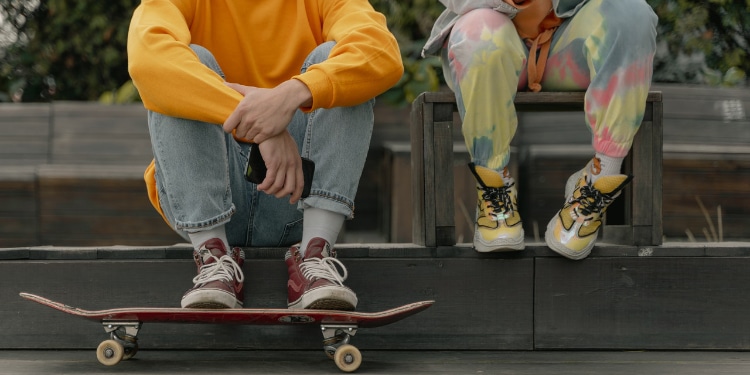











Depression is one of the most common mental illnesses worldwide, with an estimated 264 million people who suffer from it. It seems like depression is widely considered to be the most spoken about mental illness. Unfortunately, there is still a general stigma around people receiving professional help. However, this is especially prevalent in men.

While there is still an overall lack of resources for men who are fighting depression, there have been a few pioneers who have jumped into action. Today, we have spoken with Heads Up Guys, one of the leaders in men’s depression. We interviewed Josh Beharry, the project coordinator for Heads Up Guys, and the founder Dr. John Ogrodniczuk, who is also the Director of the Psychotherapy Program at The University of British Columbia.
HeadsUpGuys launched in June 2015 after having received a starter grant from the Movember Foundation that helped get us up and running. We wanted to create a resource that spoke to men directly about the often-overlooked issues of depression and suicide among men. (In North America men account for 3/4s of all suicides – with untreated or poorly treated depression being a leading risk factor).
The site has been very well received and we have steadily gained traction. Our straightforward, practical approach focuses on practical tips, inspirational stories, and actionable advice for men, which really resonates with a lot of men.
As we created more content and held more campaigns, we have seen our website traffic rapdily increase, solidifying ourselves as a leading global resource with nearly 2,000,000 visitors since launch.
Unfortunately, in our society boys are often raised with the notion that showing emotions (especially vulnerable emotions like sadness or fear) is a weakness. These masculine proscriptions become embedded in a boy’s character and, as he grows up, make it hard for him to show, process, or even articulate emotions – which instead get hidden and unaddressed.
Yet, society and stigma are changing with regard to attitudes about mental health among men, as evidenced by disclosures of mental health difficulties by well-known men like Michael Phelps and Kevin Love, who shared their experiences to show guys that depression has nothing to do with personal weakness. More open and honest conversations like this are needed so boys and men know it’s okay to talk about their mental health – and confronting rather than hiding from the challenges we face in life is a key step to overcoming difficulties and leading a more healthy and happy life.
Most guys don’t talk about their mental health with others, so they often feel they are completely alone in their experience of depression and suicidal thoughts. But the truth is many men face challenges with their mental health. Thus, one of the first things is to normalize the experience of depression and let guys know they are not alone – that depression can happen to any guy, and that recovery is also possible.
Therapy with men doesn’t need to be fundamentally different. It’s far more important for the therapist to appreciate the unique circumstances of each male client in order to be optimally responsive to his needs. The worst thing we can do is make presumptions about someone simply because he is male.
Our site focuses on men 18-45 of any sexual orientation and uses images and stories from men in this age group to better connect with our audience.
In therapy though, the difficulties a man presents with are shaped by a wide range of factors, including age-dependent phase of life circumstances and sexual orientation. Paying attention to a man’s experience of these and other factors helps create a personal narrative that is unique to each man. In this way, while it’s really important to have a good appreciation for the masculine socialization forces that shape the experiences of males, therapy is actually personalized to the unique experiences and circumstances of each individual.
We’d like to continue seeing more men speak up and share their experiences with mental health issues and recovery, so other guys who are struggling don’t feel alone and also know that recovery is possible. We also want to see more men know about the signs and symptoms of depression so that they or their friends can reach out early. Critically, we would like to see the landscape change to the point where men can recognize and act on mental health issues in the same way that they would for physical health issues (e.g., a broken leg) – when you recognize a problem, act to fix it.